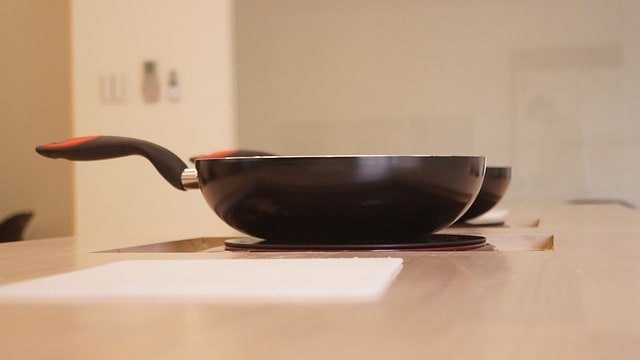The taste of a spice can often be enhanced through heating during the cooking process. The concern is that spices can burn and the taste and flavor normally offered can be lessened through overheating.
Here’s are 7 tips to avoid burning your spices and ruining your cooked dishes:
- Use a lower heat setting when cooking with spices.
- Add spices at the end of the cooking process to prevent burning.
- Stir frequently to prevent spices from sticking to the pan.
- Use a non-stick pan or a well-seasoned cast iron pan.
- Toast whole spices in a dry pan before grinding them to bring out their flavors.
- Add a small amount of oil or butter to the pan to help prevent sticking.
- Keep an eye on the spices while cooking and remove them from the heat as soon as they start to brown or smoke.
The science behind keeping your spices from burning
Spices contain essential oils that can burn or become bitter if they are exposed to high heat for too long. When spices are exposed to heat, the essential oils begin to evaporate, which can cause them to lose their flavor and aroma.
Additionally, when the essential oils in spices reach their smoke point, they can start to break down and create harmful compounds that can give food an off-flavor.
To prevent spices from burning, it is important to cook them at a low temperature and to add them at the end of the cooking process. This allows the spices to infuse the dish with flavor without losing their essential oils.
Additionally, stirring frequently can help prevent spices from sticking to the pan and burning. Using a non-stick pan or a well-seasoned cast iron pan can also help prevent burning, as these types of pans have a natural non-stick surface.
Toasting whole spices before grinding them can also help to bring out their flavor and prevent them from burning. This is because toasting the spices helps to release their essential oils and makes them more fragrant. Adding a small amount of oil or butter to the pan can also help to prevent sticking and burning.
Finally, it is important to keep an eye on the spices while cooking and remove them from the heat as soon as they start to brown or smoke.
Spices that are particularly susceptible to burning
Some spices are more susceptible to burning when heated than others. These include:
- Ground spices: Ground spices have a larger surface area than whole spices and are more likely to burn because they have more essential oils that can evaporate.
- Delicate spices: Delicate spices, such as basil, thyme, and parsley, are more likely to burn because they have a lower smoke point.
- Dried herbs: Dried herbs, such as oregano and rosemary, have a lower moisture content than fresh herbs, which can make them more susceptible to burning.
- Turmeric: Turmeric is a spice that is particularly susceptible to burning because it can stain easily, and it has a low smoke point.
- Paprika: Paprika can be very susceptible to burning, especially sweet paprika which can burn fast.
- Cayenne Pepper: Cayenne pepper is a powder that can burn easily and it can also become bitter if it is exposed to high heat for too long.
- Chili powder: Chili powder can burn quickly, specially if it’s not fresh.
It’s important to keep an eye on these spices when cooking and to remove them from the heat as soon as they start to brown or smoke. Additionally, adding these spices towards the end of the cooking process can also help to prevent burning.

